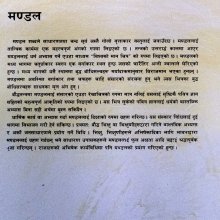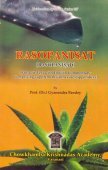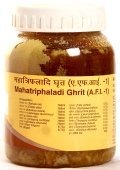Viti, Vīti, Viṭi, Vīṭi, Vīṭī: 16 definitions
Introduction:
Viti means something in Hinduism, Sanskrit, Buddhism, Pali, the history of ancient India, Marathi, biology, Tamil. If you want to know the exact meaning, history, etymology or English translation of this term then check out the descriptions on this page. Add your comment or reference to a book if you want to contribute to this summary article.
Images (photo gallery)
In Hinduism
Purana and Itihasa (epic history)
Source: archive.org: Puranic EncyclopediaVīti (वीति).—A fire. It is ordained that the offering (Puroḍāśa) prepared for oblation, should be put in the fire formed by the blending of the fires Gārhapatya and Āhavanīya with Dakṣiṇāgni (a fire). (Mahābhārata Vana Parva, Chapter 225, Stanza 25).
Source: Cologne Digital Sanskrit Dictionaries: The Purana IndexVīti (वीति).—A sādhya.*
- * Brahmāṇḍa-purāṇa III. 3. 17.

The Purana (पुराण, purāṇas) refers to Sanskrit literature preserving ancient India’s vast cultural history, including historical legends, religious ceremonies, various arts and sciences. The eighteen mahapuranas total over 400,000 shlokas (metrical couplets) and date to at least several centuries BCE.
India history and geography
Source: Institut Français de Pondichéry: The Shaivite legends of KanchipuramViti (விதி) (in Tamil) refers to Vidhi in Sanskrit, and represents one of the proper nouns mentioned in the Kanchipuranam, which narrates the Shaivite Legends of Kanchipuram—an ancient and sacred district in Tamil Nadu (India). The Kanchipuranam (mentioning Viti) reminds us that Kanchipuram represents an important seat of Hinduism where Vaishnavism and Shaivism have co-existed since ancient times.

The history of India traces the identification of countries, villages, towns and other regions of India, as well as mythology, zoology, royal dynasties, rulers, tribes, local festivities and traditions and regional languages. Ancient India enjoyed religious freedom and encourages the path of Dharma, a concept common to Buddhism, Hinduism, and Jainism.
Biology (plants and animals)
Source: Google Books: CRC World Dictionary (Regional names)1) Viti in India is the name of a plant defined with Cassytha filiformis in various botanical sources. This page contains potential references in Ayurveda, modern medicine, and other folk traditions or local practices It has the synonym Ocotea cuneata Urb. (among others).
2) Viti is also identified with Dalbergia latifolia It has the synonym Lonchocarpus latifolius (Roxb.) Kunth (etc.).
Example references for further research on medicinal uses or toxicity (see latin names for full list):
· The Gardeners Dictionary (1768)
· Systema Laurinarum (1836)
· Flora AegyptiacoArabica (1775)
· Nomenclator Botanicus (1797)
· Nova Genera et Species Plantarum (1823)
· Prodr. (DC.) (1825)
If you are looking for specific details regarding Viti, for example chemical composition, diet and recipes, side effects, health benefits, extract dosage, pregnancy safety, have a look at these references.

This sections includes definitions from the five kingdoms of living things: Animals, Plants, Fungi, Protists and Monera. It will include both the official binomial nomenclature (scientific names usually in Latin) as well as regional spellings and variants.
Languages of India and abroad
Pali-English dictionary
Source: Sutta: The Pali Text Society's Pali-English DictionaryVīti°, is the contracted prepositional combination vi+ati, representing an emphatic ati, e.g. in the foll. :
—(k)kama (1) going beyond, transgression, sin Vin. III, 112; IV, 290; J. I, 412; IV, 376; Pug. 21; Miln. 380; Vism. 11, 17; DhA. IV, 3.—(2) going on, course (of time) PvA. 137 (°ena by and by; v. l. anukkamena). —kiṇṇa sprinkled, speckled, gay with J. V, 188. —nāmeti to make pass (time), to spend the time, to live, pass, wait J. III, 63, 381; DhA. II, 57; VvA. 158; PvA. 12, 21, 47, 76. —patati to fly past, to flit by, to fly up & down Sn. 688; A. V, 88=Miln. 392. —missa mingled, mixed (with) M. I, 318; D. III, 96; J. VI, 151. —vatta having passed or overcome, gone through; passed, spent S. I, 14, 145; III, 225; IV, 52; A. II, 44; Sn. 6, 395, 796; J. I, 374; ThA. 170; PvA. 21, 55, 83. —sāreti (fr. vi+ati+ sṛ; not with Childers fr. smṛ; cp. BSk. vyatisārayati) to make pass (between), to exchange (greeting), to address, converse (kathaṃ), greet. Often in phrase sārāṇīyaṃ sammodanīyaṃ kathaṃ vītisāreti (for which BSk. sammodanīṃ saṃrañjanīṃ vividhāṃ kathāṃ vyatisārayati, e.g. AvŚ II. 140) D. I, 52, 90, 118, 152; Sn. 419; cp. Miln. 19; J. IV, 98 (shortened to sārāṇīyaṃ vītisārimha; explained with sārayimha); V, 264. —haraṇa passing (mutually), carrying in between J. VI, 355 (bhojanānaṃ). —harati to associate with (at a meal) S. I, 162. —hāra, in pada° “taking over or exchange of steps, ” a stride S. I, 211; A. IV, 429; J. VI, 354. Same in BSk. e.g. MVastu I. 35; III, 162. (Page 644)

Pali is the language of the Tipiṭaka, which is the sacred canon of Theravāda Buddhism and contains much of the Buddha’s speech. Closeley related to Sanskrit, both languages are used interchangeably between religions.
Marathi-English dictionary
Source: DDSA: The Aryabhusan school dictionary, Marathi-Englishviṭī (विटी).—
Marathi is an Indo-European language having over 70 million native speakers people in (predominantly) Maharashtra India. Marathi, like many other Indo-Aryan languages, evolved from early forms of Prakrit, which itself is a subset of Sanskrit, one of the most ancient languages of the world.
Sanskrit dictionary
Source: DDSA: The practical Sanskrit-English dictionaryViṭi (विटि) or Viṭī (विटी).—f. Yellow sandal.
Derivable forms: viṭiḥ (विटिः).
--- OR ---
Vīṭi (वीटि) or Vīṭī (वीटी).—f.
1) The betel-plant.
2) A preparation of betel (Mar. vīḍā = tāmbūla q. v.).
3) A tie, fastening, knot (of a wearing garment).
4) The knot of a bodice; त्वं मुग्धाक्षि विनैव कञ्चुलिकया धत्से मनोहारिणीं लक्ष्मीमित्यभिधायिनि प्रियतमे तद्वीटिकासंस्पृशि (tvaṃ mugdhākṣi vinaiva kañculikayā dhatse manohāriṇīṃ lakṣmīmityabhidhāyini priyatame tadvīṭikāsaṃspṛśi) | Amaruśataka 27.
Derivable forms: vīṭiḥ (वीटिः).
See also (synonyms): vīṭikā.
--- OR ---
Vīti (वीति).—[vī-ktin] A horse.
-tiḥ f.
1) Going, motion.
2) Producing, production.
3) Enjoyment.
4) Eating.
5) Light, lustre.
6) Cleaning, purifying.
7) Separation; termination (nivṛtti); भववीतये (bhavavītaye) Kirātārjunīya 6.41,44.
Derivable forms: vītiḥ (वीतिः).
Source: Cologne Digital Sanskrit Dictionaries: Edgerton Buddhist Hybrid Sanskrit DictionaryVīti (वीति).—(°-), for vyati-, q.v. (chiefly in Mahāvastu).
Source: Cologne Digital Sanskrit Dictionaries: Shabda-Sagara Sanskrit-English DictionaryViṭi (विटि).—f. (-ṭiḥ or ṭī) Yellow saunders.
--- OR ---
Vīti (वीति).—f.
(-tiḥ) 1. Going, moving, motion. 2. Eating. 3. Engendering, producing. 4. Cleaning, cleansing. 5. Light, lustre. 6. Enjoyment. m.
(-tiḥ) A horse. E. vī to go, ktin or ktic aff.
Source: Cologne Digital Sanskrit Dictionaries: Benfey Sanskrit-English DictionaryVīti (वीति).—[vī + ti], I. f. 1. Going. 2. Engendering. 3. Eating, [Lassen, Anthologia Sanskritica.] 101, 9 = [Rigveda.] vii. 16, 4. 4. Cleaning. 5. Light, lustre. Ii. m. A horse.
Source: Cologne Digital Sanskrit Dictionaries: Cappeller Sanskrit-English DictionaryVīti (वीति).—1. [feminine] enjoyment, delight, profit, advantage, favourite food or drink.
--- OR ---
Vīti (वीति).—2. [feminine] separation.
Source: Cologne Digital Sanskrit Dictionaries: Monier-Williams Sanskrit-English Dictionary1) Viṭi (विटि):—f. yellow sanders, [cf. Lexicographers, esp. such as amarasiṃha, halāyudha, hemacandra, etc.]
2) Viti (विति):—f. = vīti, in gaurī-viti q.v.
3) Vīti (वीति):—[from vī] 1. vīti f. ([dative case] vītaye often used as [infinitive mood]) enjoyment, feast, dainty meal, full draught etc., [Ṛg-veda]
4) [v.s. ...] advantage, profit, [ib.] ([cf. Lexicographers, esp. such as amarasiṃha, halāyudha, hemacandra, etc.] also light, lustre = gati, prajana, dhāvana)
5) [v.s. ...] m. a [particular] Agni, [Aitareya-brāhmaṇa]
6) [from vī] 2. vīti f. separation, [Taittirīya-saṃhitā]
7) Vīṭi (वीटि):—[from vīṭaka] f. the betel plant, Piper Betel, [cf. Lexicographers, esp. such as amarasiṃha, halāyudha, hemacandra, etc.]
8) Vīṭī (वीटी):—[from vīṭaka] f. the betel plant, Piper Betel, [cf. Lexicographers, esp. such as amarasiṃha, halāyudha, hemacandra, etc.]
9) Vīti (वीति):—3. vīti m. = pīti1, a horse, [Rājataraṅgiṇī]
Source: Cologne Digital Sanskrit Dictionaries: Yates Sanskrit-English Dictionary1) Viṭi (विटि):—(ṭiḥ) 2. f. Yellow saunders.
2) Vīti (वीति):—(tiḥ) 2. f. Going; eating; producing; cleaning; light. m. A horse.
[Sanskrit to German]
Sanskrit, also spelled संस्कृतम् (saṃskṛtam), is an ancient language of India commonly seen as the grandmother of the Indo-European language family (even English!). Closely allied with Prakrit and Pali, Sanskrit is more exhaustive in both grammar and terms and has the most extensive collection of literature in the world, greatly surpassing its sister-languages Greek and Latin.
Kannada-English dictionary
Source: Alar: Kannada-English corpusViṭi (ವಿಟಿ):—[noun] a coquettish or wanton woman.
--- OR ---
Vīṭi (ವೀಟಿ):—[noun] = ವಿಳ್ಳೆ [ville].
--- OR ---
Vīti (ವೀತಿ):—
1) [noun] the act of going, moving.
2) [noun] light; lustre.
3) [noun] a horse.
Kannada is a Dravidian language (as opposed to the Indo-European language family) mainly spoken in the southwestern region of India.
See also (Relevant definitions)
Starts with (+111): Vitia, Vitiaa, Vitiation, Vitibhava, Viticanku, Viticcha, Viticcha Jataka, Viticcuttiram, Vitidandu, Vitigabhati, Vitigata, Vitigiccha, Vitigimcha, Vitihara, Vitiharana, Vitiharati, Vitihari, Vitiharitva, Vitihavya, Vitihotra.
Ends with (+62): Anuviti, Anviti, Arukkanviti, Aruviti, Attaiviti, Avanaviti, Aviti, Avuruviti, Bahuviti, Baka ni viti, Bhavaviti, Boviti, Caucaviti, Cavakacaviti, Ceviti, Cirappuviti, Curiyaviti, Devaviti, Gauraviti, Gauriviti.
Full-text (+1464): Vidhi, Vitihotra, Vidhiprasanga, Vidhighna, Visheshavidhi, Draksha, Vitiradhas, Kriyavidhi, Prayashcittavidhi, Vitivarnam, Vinviti, Vitimurai, Cirappuviti, Arukkanviti, Yathavidhi, Vitittokai, Prasadhanavidhi, Gauriviti, Vaiyaliviti, Cavakacaviti.
Relevant text
Search found 134 books and stories containing Viti, Vīti, Viṭī, Viṭi, Vīṭi, Vīṭī, Vithi, Vidhi; (plurals include: Vitis, Vītis, Viṭīs, Viṭis, Vīṭis, Vīṭīs, Vithis, Vidhis). You can also click to the full overview containing English textual excerpts. Below are direct links for the most relevant articles:
Patthana Dhamma (by Htoo Naing)
Chapter 14 - Purejāta paccayo (or prenascence condition)
Chapter 26 - Natthi paccayo and vigata paccayo (or absence and disappearance)
A History of Indian Philosophy Volume 1 (by Surendranath Dasgupta)
Part 14 - Mīmāṃsā as philosophy and Mīmāṃsā as ritualism < [Chapter IX - Mīmāṃsā Philosophy]
Part 1 - The place of the Upaniṣads in Vedic literature < [Chapter III - The Earlier Upaniṣads (700 B.c.— 600 B.c.)]
Lakulisha-Pashupata (Philosophy and Practice) (by Geetika Kaw Kher)
Ganakarika by Acharya Bhasarvajna < [Chapter 4 - The Philosophical Context]
Diksa (Initiation) < [Chapter 3 - The Ritualistic Context]
Purpose of the Study < [Introduction]
Rig Veda (translation and commentary) (by H. H. Wilson)
A Discourse on Paticcasamuppada (by Venerable Mahasi Sayadaw)
Chapter 6 - Follow-up Vithi < [Part 3]
Chapter 4 - Vithi-cittas < [Part 3]
Chapter 5 - Manodvara Vithi < [Part 3]
A History of Indian Philosophy Volume 2 (by Surendranath Dasgupta)
Part 6 - Conception of Sacrificial Duties in the Gītā < [Chapter XIV - The Philosophy of the Bhagavad-gītā]
Part 27 - Appaya Dīkṣita (a.d. 1550) < [Chapter XI - The Śaṅkara School of Vedānta (continued)]
Part 9 - Maṇḍana (a.d. 800) < [Chapter XI - The Śaṅkara School of Vedānta (continued)]
Related products
(+17 more products available)







